
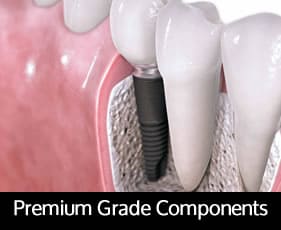

Do you need dental implants in Leeds?
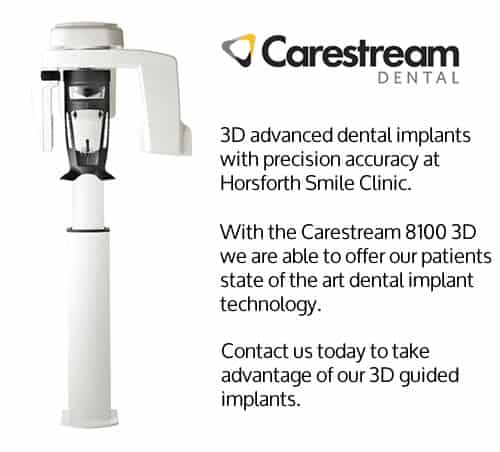 Our dentists have been performing dental implants over 20 years across Yorkshire. We have a highly skilled professional team who will talk you through your entire procedure, explain the risks and give you full peace of mind when deciding to get dental implants. We routinely provide solutions for single missing teeth to rebuilding entire upper and lower jaws. We take referrals from other dental practices for these procedures and are able to bone graft / augment and perform sinus lifts should this be required.
Our dentists have been performing dental implants over 20 years across Yorkshire. We have a highly skilled professional team who will talk you through your entire procedure, explain the risks and give you full peace of mind when deciding to get dental implants. We routinely provide solutions for single missing teeth to rebuilding entire upper and lower jaws. We take referrals from other dental practices for these procedures and are able to bone graft / augment and perform sinus lifts should this be required.
Dental implants are the perfect way to restore your smile in a permanent way, repair gaps and ensures healthy teeth are not affected.
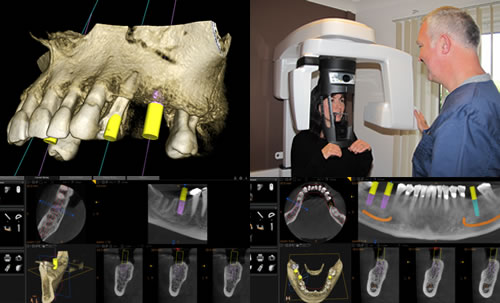
Dental Implants must be completed with the utmost skill and attention.
Dr. Zaf Khan, your principle dentist is highly trained in implant aesthetics, with a focus on the technical aspects of the implant as well as the utmost care and attention to ensure correct placement. We have patients coming to our practice with previous implant surgeries, often completed without any understanding jawlines, bone structure, inherent conditions and other underlying issues that could affect your implant!
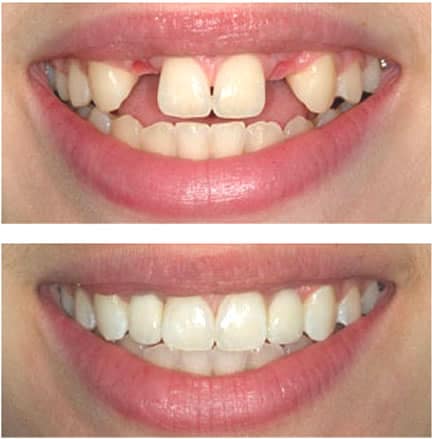
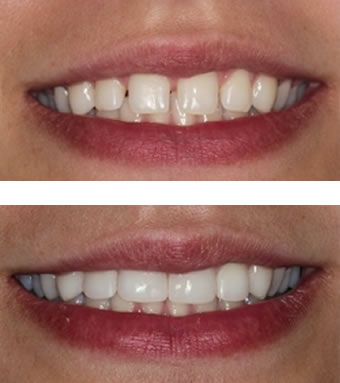
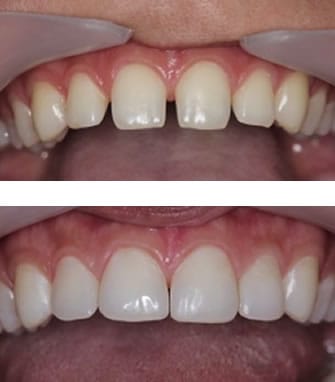
Dental implants are titanium screws which are skillfully placed into either of the jaw bones. Once in position, the implants may be left for a short healing period after which the implant is uncovered and then used to support either a crown, bridge or denture.
Until recently, dentures were the solution to replacing missing teeth, but they can look unnatural and can make biting, chewing, speaking embarrassing and difficult, They can lead to further problems with teeth, gum and jaw bone. Implants are an ideal way to transform your smile as they look and feel just like your own teeth. They are also often stronger than your own teeth and are fixed into your jaw, so there is little danger of them falling out. None of your other teeth are affected and implants actually strengthen the bone and gum into which they are fixed. Smiling, talking, biting, kissing, it can all be done with the utmost confidence. They are suitable for anyone aged 18 onwards, there is no upper age limit.
Not all dentists are comfortable or trained to place implants, the ones that do have had some further training.
Implant treatment requires full assessment and planning. This will involve the use of models of your teeth, the fabrication of temporary dentures or bridges prior to implant provision.
Assessment can take the form of x-rays, CT scans, medical history etc. to determine bone width and height.
Implants are placed into the bone under a local anaesthetic, similar to the one used when you have routine fillings. Sedation can often be used to relax people further.
Once in position, the implant is generally left for up to 3 months, although shorter time periods are possible in certain situations. The next stage involves a quick and simple procedure to place a post into the implant onto which the crown or bridge will ultimately be fixed. The crown will be matched exactly in size and colour and be custom made so that it looks as natural as possible and blends in perfectly with your own teeth.
If you are missing a single tooth, then one implant is all that is required.
Larger gaps created by two or more missing teeth do not necessarily need an implant for each missing tooth. The exact number required depends upon the bone volume and quality at each potential placement site.
In the upper jaw, bone density is usually poorer than in the lower and if you have no teeth at all, then at least 4 implants are required to secure a denture/ removable bridge here and ideally at least 6 should you wish to proceed with a completely fixed bridge with 10 teeth or more. Recently, the All on 4 concept has become very popular, working with 4 implants and this is something that can be provided.
In the lower jaw, the bone in the front portion is generally very dense. A lower denture can easily be supported on 2 implants here. Fixed bridge work may be possible with 4 implants but it is more common to use around 6.
Mini implants have revolutionised implant dentistry and made this procedure far more accessible to many more people around the world. Their main use is to secure loose dentures- especially the lower ones.
Millions of people worldwide struggle and suffer daily with a great degree of discomfort as a result of loose or ill-fitting dentures. Many denture wearers simply withdraw from any social engagement as a result of their embarrassment. Moreover, it’s not uncommon for family members to complain about a denture wearer’s disagreeable breath as a result of food being trapped and decaying under their denture. Successful placement of the mini dental implants addresses and solves all of these social and practical problems.
Due to the way Mini dental implants are placed, quite often the whole process can be completed in one stage within an hour. Dentures will be stable immediately after that.
More importantly, Mini Dental implants are surprisingly affordable, costing a fraction of conventional implants.
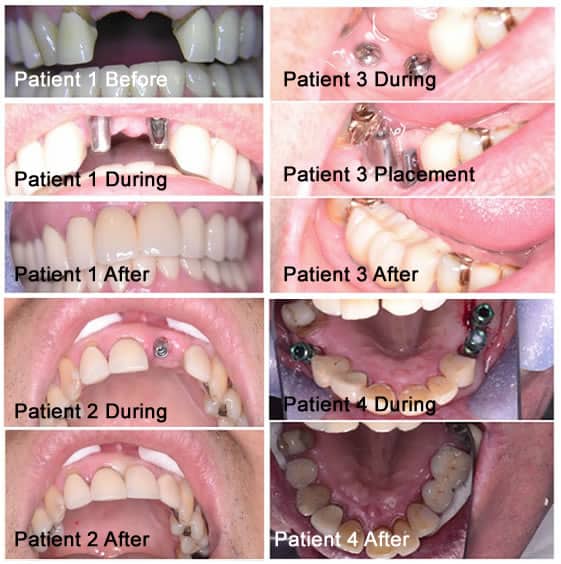
Dental implants are perfectly safe and offer many advantages over other methods of replacing missing teeth such as dentures. Dental implants have been in use for many years. Implants can also enhance existing procedures which are currently used to replace one or two missing or damaged teeth. However, it is important to use a properly skilled orthodontist to do the work and not every dentist is trained in how to correctly fit implants.
Successful implants require careful assessment of the patients’ jaw and exiting teeth using X-rays and CT scans and a targeted plan which minimises any risk and works to a successful outcome and a beautiful smile.
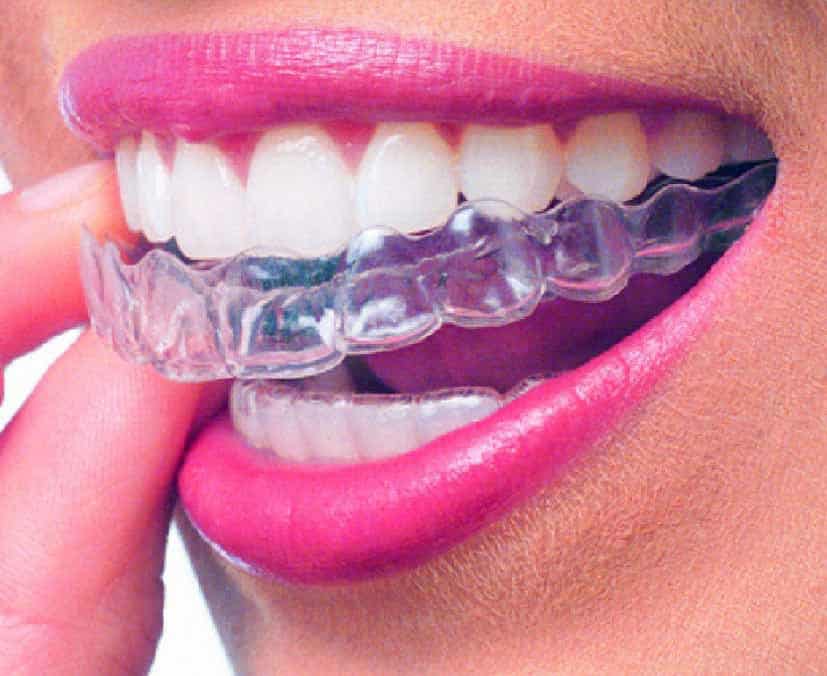
Using our suitable trained dentists who are skilled in implant work makes the whole process perfectly safe.
Dental implants are placed into the jaw bone under a local anaesthetic much as if you were having a filling. There may be a feeling of pressure from time to time but the whole area will be numb and pain-free during the procedure. After the process, the jaw may ache for a couple of days whilst the implant settles down but this is easily remedied with an oral over the counter painkiller like Paracetamol or Ibuprofen.

As part of the initial assessment, a dentist should take care to evaluate the patient to ensure that dental implants are a suitable and appropriate option. That’s why it is so important to have a qualified dentist with experience to undertake the assessment and this is what we offer at Horsforth Smile Clinic.
Dental implants are suitable for most adults who are in good general health and have adequate bone in the jaw to support the implant. Healthy gum tissue is also essential so gums free of periodontal disease. Implants are ideal for adults with one or two missing teeth or for someone who struggles with wearing dentures.

Children and young people who are still growing are not candidates for dental implants because the underlying bones in the jaw are still growing. The dentist may also not recommend implants to people who smoke or who have had radiotherapy to the jaw area.

The process will involve initial consultation and evaluation followed by careful planning. The process of fitting one implant takes around an hour but it is usually three to six months or longer before the final finished tooth is fitted.
Theoretically, it is possible to do a dental implant in one day and have a fully functioning tooth present but more commonly, the implant is left for around three months before the final replacement tooth is fitted


The concept of a dental implant is that it is very much a fixed and permanent feature which is why they are so attractive in comparison to dentures and relatively maintenance-free.
An implant is usually only removed if it has failed. Implant failures are divided into two categories – early failure and late failure.
An early failure happens within the first few months and can be caused by an infection, an unsuccessful integration period – known as osseointegration – or just too much movement during the healing process. The implant won’t have fused properly to the jawbone so it can be removed by a specialist.
A late implant failure is any time after the first year following the procedure and again this failure can be brought about by infection or just a loosening of the implant over time.
.

Dental implants are made of titanium or titanium alloys which are described as ‘biocompatible’ – this means it will not be rejected as ‘hostile’ by the body and will happily fuse with the bone in the jaw.
Placed in the jaw bone, the bone grows around the implants and bonds to them, treating them rather like bone. This process is called osseointegration and once secure, the implant can function like a natural tooth root. The implant will hold the new tooth securely in place and can be used to hold crowns, bridges or dentures and replace missing teeth.
The bit that everyone is concerned about is the part the people can see which is called the prosthetic tooth. This is usually made from porcelain or a similar substance and these teeth are customised to suit your existing teeth even down to a match on the enamel colour.
.
Some care has to be taken once dental implants have been fitted but most dentists recommend that you are scrupulous about oral hygiene and that if you are a smoker, you quit. This is beneficial for all your teeth, not just dental implants.
The main threat is gum disease which is a potential problem for those who don’t clean their teeth regularly, smokers and for those who already have gum disease which is a why healthy gums are often a pre-requisite to having implants fitted.
If an infection develops around a dental implant then the jaw bone around the implant can become affected and start to deteriorate. This in turn will affect the structural stability of the implant. This is called peri-implantitis and is a specific disease that causes an inflammatory process in the soft tissues around the implant and subsequent bone loss which will ultimately undermine the integrity of the implant.
Looking after implants is no different to how you should look after your own teeth – good oral hygiene, flossing, teeth cleaning twice a day and regular check-ups with your dentist.

Dental implants are not available on the NHS but around 10,000 are performed in the UK every year.